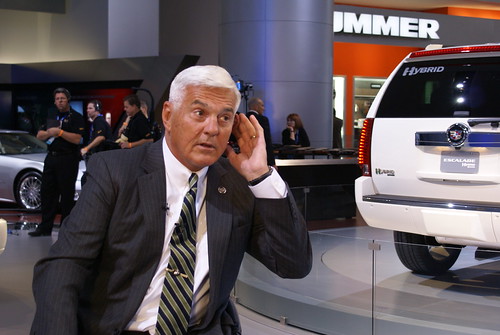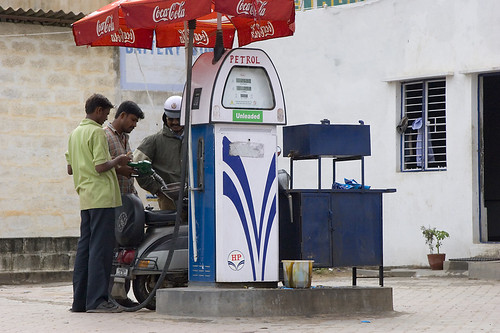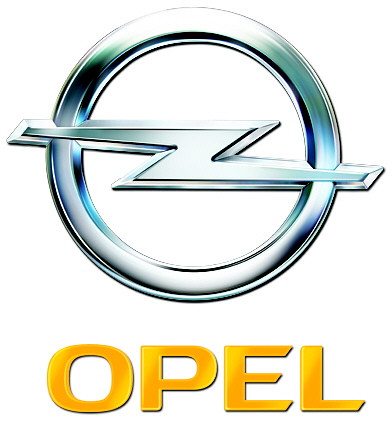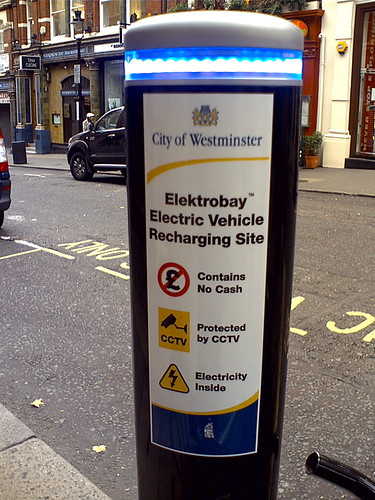(Source: BBC & CNN Money)
Germany has agreed a deal with Magna International, a Canadian-Austrian car parts maker, to take over Opel, part of the European wing of US carmaker GM.
Talks in Berlin continued into early Saturday before Germany’s finance minister announced a deal.
The German government is expected to provide an immediate loan facility of 1.5bn euros ($2.1bn, £1.3bn).

But 2,500 jobs in Germany could be lost and a UK minister has accepted “there is excess capacity” in GM’s operations.
Finance Minister Peer Steinbrueck told journalists outside the chancellery shortly after 0200 local time on Saturday that a deal had been agreed. Earlier on Friday, Opel and Magna’s reached a preliminary agreement with GM.
“We have an agreement,” said Mr Steinbrueck, the AFP news agency quoted him as saying, following six hours of talks between German politicians, US government officials and executives from GM and Magna.
Magna, teamed with Russian auto maker OAO GAZ Group (GAZA.RS) and state- controlled OAO Sberbank (SBER.RS), has said it will put more than 500m euros ($700m; £435m) into Opel.
Steinbrueck said the parties involved also agreed on the model of a trusteeship for Opel for the interim period.
Speaking after the marathon talks that started Friday afternoon in Berlin, Magna co-Chief Executive Siegfried Wolf said he expects the deal with General Motors to be signed in five weeks.
Wolf confirmed that Magna will provide the short-term cash demand of EUR300 million to Opel, which was one of the key reasons for the German government to delay the decision on state aid earlier this week. He said the funds would be available Tuesday.
Italian auto maker Fiat SpA (FIATY), Magna’s last remaining contender for Opel, skipped the meeting inBerlin, citing a lack of transparency over Opel’s financial condition.
Although the decision on the fate of GM’s European operations eventually rests with the U.S. government and GM itself, Berlin played a key role in the negotiations by providing billions of euros for the bridging finance.
The German government took a deep interest in the sales process as it faces general elections in the fall, and the prospect of seeing thousands of Opel employees losing their jobs made a rescue plan for the traditional car maker a top priority for both parties in Germany’s current grand coalition.
Ruesselsheim-based Opel employs around 25,000 workers. It is part of GM’s European operations that employ more than 50,000, with manufacturing plants in Spain, Poland, Belgium and Britain, where Opel cars are sold under the Vauxhall brand, as well as engine and parts sites such as Aspern, near Vienna.
German Economy Minister Karl-Theodor zu Guttenberg said he arrived at a different risk evaluation, but added he supports the deal and will help to see it completed.
A press conference has been scheduled for Saturday at 8:00 a.m. GMT to explain further details of the Opel deal, Finance Minister Steinbrueck said.
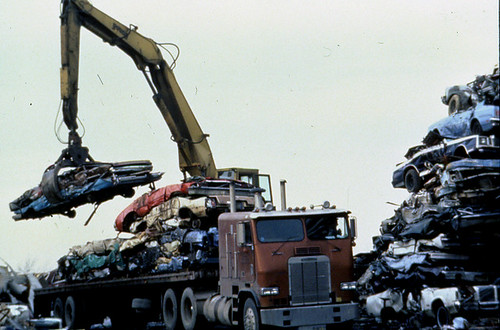 At a recycling plant in San Pedro and five other similar operations around California, giant shredding machines annually reduce 1.3 million junk cars, refrigerators and other appliances into fist-sized chunks of metal.
At a recycling plant in San Pedro and five other similar operations around California, giant shredding machines annually reduce 1.3 million junk cars, refrigerators and other appliances into fist-sized chunks of metal.


